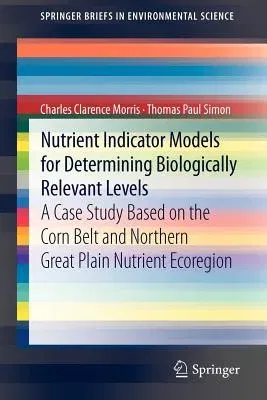Charles Clarence Morris
(Author)Nutrient Indicator Models for Determining Biologically Relevant Levels: A Case Study Based on the Corn Belt and Northern Great Plain Nutrient EcoregioPaperback - 2012, 5 April 2012

Qty
1
Turbo
Ships in 2 - 3 days
In Stock
Free Delivery
Cash on Delivery
15 Days
Free Returns
Secure Checkout
Part of Series
Springerbriefs in Environmental Science
Print Length
67 pages
Language
English
Publisher
Springer
Date Published
5 Apr 2012
ISBN-10
9400741286
ISBN-13
9789400741287
Description
Product Details
Book Edition:
2012
Book Format:
Paperback
Country of Origin:
NL
Date Published:
5 April 2012
Dimensions:
23.39 x
15.6 x
0.41 cm
Genre:
Ecology
ISBN-10:
9400741286
ISBN-13:
9789400741287
Language:
English
Location:
Dordrecht
Pages:
67
Publisher:
Weight:
117.93 gm

